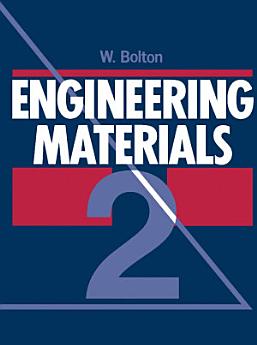Engineering Materials: Volume 2, Volume 2
Mai 2014 · Elsevier
E-Book
112
Seiten
family_home
Zulässig
info
reportBewertungen und Rezensionen werden nicht geprüft Weitere Informationen
Über dieses E-Book
Engineering Materials 2 is an introduction to the properties and structures of engineering materials such as metals, polymers, ceramics, and composites. The fracture, fatigue, creep, and environmental stability of materials are discussed, along with the results of impact tests, tensile tests, bend tests, and hardness measurements. Comprised of 13 chapters, this volume begins by considering the factors that determine the selection of a material from which a component is to be made, as well as the main properties required of engineering materials. The reader is then introduced to the main methods used for tensile testing, impact testing, bend tests, and hardness measurements, and how to interpret the results of such tests together with thermal conductivity and electrical conductivity data. Subsequent chapters focus on the basic structure of materials including metals, polymers, and composites; the shaping of metals and non-metallic materials; and the fracture, fatigue, creep, and environmental stability of materials. This book is intended for engineering students and technicians who want to gain a basic understanding of the properties and structures of engineering materials.
Autoren-Profil
Former Lecturer at Buckingham Chilterns University College, High Wycombe, UK, and now retired, William Bolton has worked in industry and academia as a senior lecturer in a college of technology, a member of the Nuffield Advanced Physics team, an adviser to a British government aid project in Brazil on technical education, as a UNESCO consultant in Argentina and Thailand, and as Head of Research and Development at the Business and Technician Education Council. He has written many engineering textbooks, including Mechatronics, 4th ed., Engineering Science, 5th ed., Higher Engineering Science, 2nd ed., Mechanical Science, 3rd ed., and Instrumentation and Control Systems.
Dieses E-Book bewerten
Deine Meinung ist gefragt!
Informationen zum Lesen
Smartphones und Tablets
Nachdem du die Google Play Bücher App für Android und iPad/iPhone installiert hast, wird diese automatisch mit deinem Konto synchronisiert, sodass du auch unterwegs online und offline lesen kannst.
Laptops und Computer
Im Webbrowser auf deinem Computer kannst du dir Hörbucher anhören, die du bei Google Play gekauft hast.
E-Reader und andere Geräte
Wenn du Bücher auf E-Ink-Geräten lesen möchtest, beispielsweise auf einem Kobo eReader, lade eine Datei herunter und übertrage sie auf dein Gerät. Eine ausführliche Anleitung zum Übertragen der Dateien auf unterstützte E-Reader findest du in der Hilfe.







